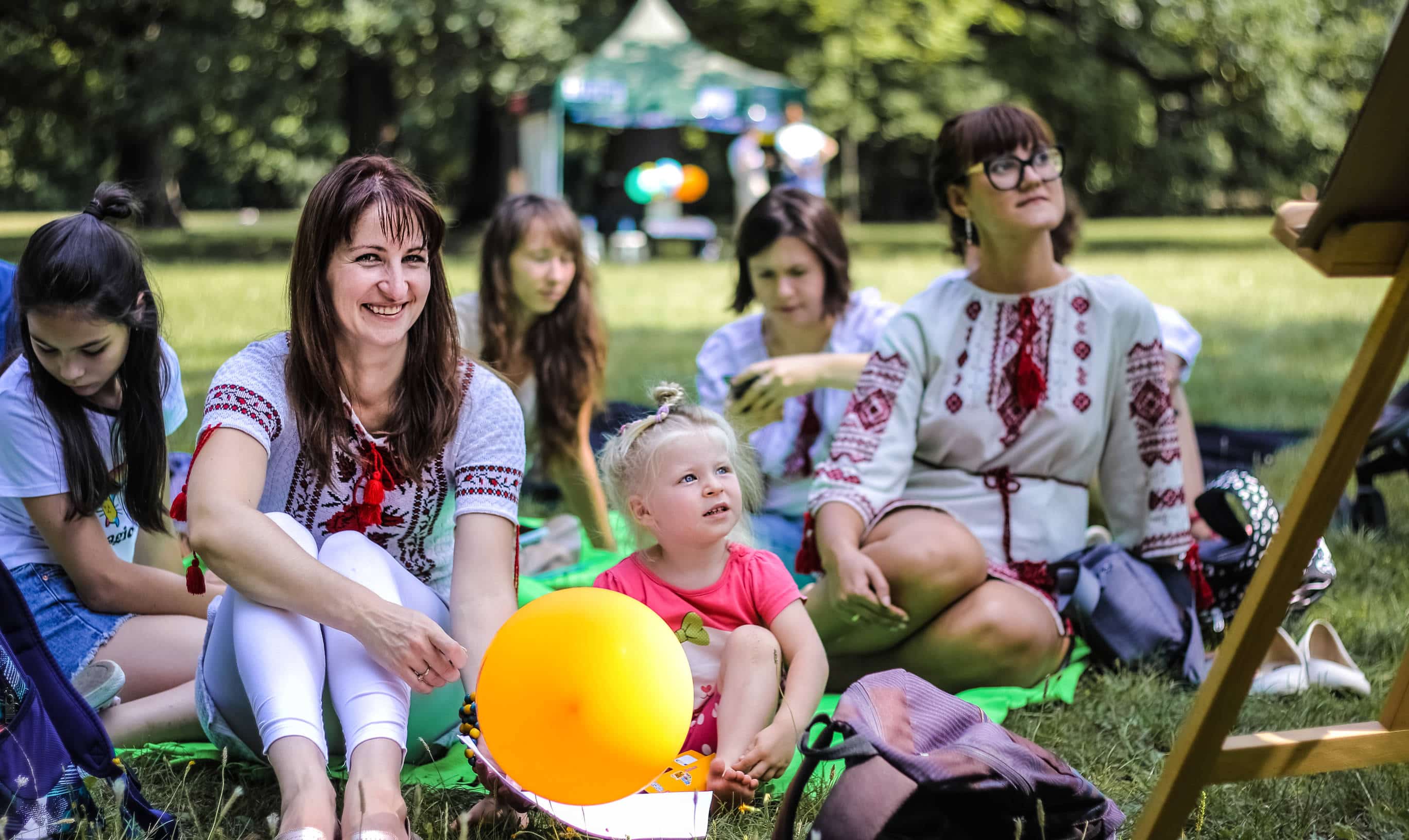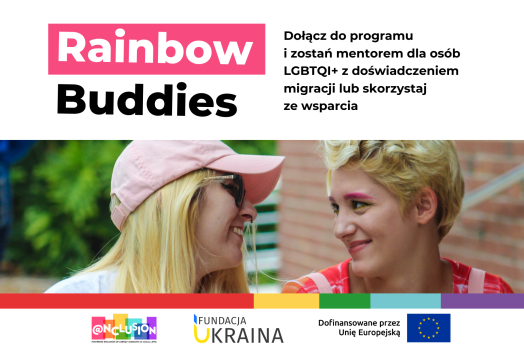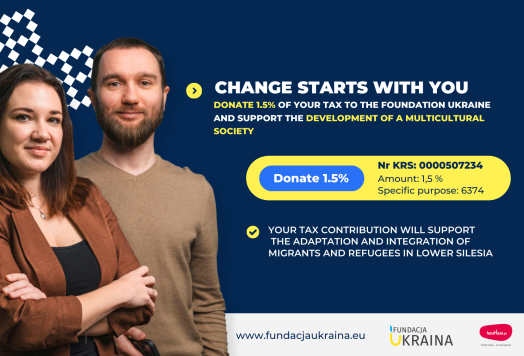The path to migration .. Each one is unique. Or maybe we are all the same and our history seems not to be an exception from the rule? With understanding of questions: who is a migrant, what are the stages of adaptation and plunge into self-reflection, will help us Wiktoria Raczyńska, psychologist of the Ukraine Foundation.
The Migrant – Who is he?
To paraphrase a sociologist from the University of Pennsylvania, Everett S. Lee, it can be said, that if you became a migrant, you had a sufficiently strong stimulus for the movement that overcame the natural heaviness that always exists. You have probably noticed that “here” there are better conditions for cognitive, professional, financial or personal development.
If in your case “here” means Poland, that is, you are a foreigner that has a valid document entitling you to stay in Poland, then you belong to a fairly large group of migrants, more than half of which constitutes citizens of Poland’s eastern neighbour – Ukraine.
We are migrants. Each of us is different; each came from his or her country and “brought” their personality and world-view, their experience and life history, their habits and dreams. We are here. Despite these differences, we face the same challenge: to acclimatize in a new country. We often experience similar feelings, pass through similar stages, and resolve the same dilemmas: should I keep “my” culture or accept a “foreign” one? Which one is truly “mine”?
“As a psychologist and a migrant, I would like to help you, Dear Migrant, to realize at which stage of entering a new culture you presently are. What is typical for this stage? Which stage can be next and what can you do to successfully achieve it?”, – these feelings, stages and dilemmas are presented in this post, says Wiktoria Raczyńska.
“Migrant-tourist” stage – you laugh at eating donuts on Fat Thursday
You are at the stage of a migrant-tourist if you take the differences in lifestyle, values and relationships of the host society with curiosity. Observing them, you do not feel any discomfort but rather find the differences exotic, treat them with a sense of humour and have fun – just like tourists. Of course, being at the migrant-tourist stage, you do not have to come to a country with a tourist aim. The name of this stage reflects the emotional state of the migrant and his or her approach to the differences in the surrounding reality in comparison to what he or she is used to. So, if you laugh at eating pączki (a Polish version of the donut) on Fat Thursday because you have always eaten pancakes, you are at the stage of a migrant-tourist. You can also compare it to the stage of dating in a relationship where everything is nice and pleasant until…
Stage “Confused migrant” – all friends ask how many donuts you ate
Until the new reality invites you to act in a different way than you are used to. It’s not like it was before – you could eat pączki. All of your friends ask how many pączki you have eaten. In your place of work they buy pączki, bakeries have long queues out the door. At the same time, since your childhood, there have been pancakes… and you haven’t eaten any pancakes today. If you feel sorrow because of it, it is the Confused migrant stage.
We can also compare this stage to the moment when the tourist’s outfit no longer fits. We came overseas in our European outfit and after some time we noticed that it not only differs from the native fashions, but it is not durable enough nor does it protect from the frost that is here. Or our warmest outfit made from the toughest material does not fit us anymore and we have to switch to “local” clothes.
This is of course a metaphor, although food preferences, celebratory traditions or manner of dressing are an important part of culture, and yet these metaphors are evoked to show that something is different from that which we are used to and we are required to take some kind of action in this regard. We note that the language, possessed knowledge, leisure time, preferred values, media read or viewed are different, relationships are made in a way we are not familiar with.
A confused migrant is similar to a man who has fallen in love, who realizes that as long as he scattered his things all over his studio flat, it did not matter, and if they start to do that with his beloved, at some point they would not be able to move around the flat.
A stage of change and even a culture shock
Introducing a more serious mood, the Confused migrant stage is so difficult that not all of us reach the next one. At this stage, we try to cope with the changes faced and experience a cultural shock accompanied by uncomfortable feelings and symptoms, such as:
– yearning for our homeland, friends and relatives who have stayed there;
– lowering self-esteem (when we are unable to do something that is important for us or when we perform a job requiring lower qualifications than we have or than we have performed in our country of origin);
– anxiety, irritability, insomnia, bouts of crying, feelings of inadequacy or even depression;
– the desire to reject the “new” culture, idealization of the “old” one;
– a psychosomatic disorder (headache, stomach ache, fatigue, decreased appetite),
– etc.
It is like you are sitting on two chairs; you are a friend among strangers and stranger among friends. You left the society you identified with and realized that even once you come back it would not be the same. While you have joined a society you do not know, you have to act or behave in it and somehow learn to adjust. In other words, you learned patterns of behaviour that worked well in your culture of origin, and now you function in a different culture that has different behaviour patterns. Here is a list of activities that migrants usually take to feel good in a new place. It may happen that you take some of them intuitively.
A recipe for acclimatization in the host society
Check this list. It may inspire you to broaden the spectrum of activities intended to assist you in acclimatizing to the host society.
So migrants:
1) learn a “local” language so that they can participate in social life;
2) gain knowledge on the economy, politics, culture, geography, and the history of their new home and use this knowledge when talking to friends and when making job or investment decisions;
3) join local professional, social, sport, volunteer or cultural groups;
4) observe the behaviour of the local population and learn effective behaviour patterns;
5) use migration networks – i.e., the experience of current or former migrants.
In this way, migrants put down roots and build a life in their new home.
Stage “Acclimatized migrant” – we eat donuts, we buy a flat
This is the moment when we, Dear Migrants, eat pączki or at least we listen to our excited colleagues talking about eating rose jam, icing pączki with candied orange peel, we get used to clothes common in the country of settlement. We resemble people in love that buy an apartment where there is enough space for two of them to scatter their things.
Being at the stage of an acclimated migrant does not necessarily mean being very optimistic about the new culture and entirely accepting it. You can choose one of the ways to acclimatize, which are adaptation, integration or assimilation. The difference between these ways consists in the degree of preservation of the previous cultural identity and the degree of acceptance of the new one or the extent to which we perceive the value system of the new culture as our own.
An acclimated migrant may:
– function in a new environment while maintaining one’s own identity, for example, by working/ studying in a new country and occasionally participating in its social and cultural life, but identifying with one’s country of origin (adaptation),
– have friends who are mainly the inhabitants of the country of settlement (and not one’s compatriots), be familiar with the knowledge possessed by the majority, adopt some “new” values while maintaining some “previous” values (integration),
– perceive the new country as the chosen homeland, feel solidarity with the new society, enter into a family relationship with a person from the host country, participate in social and political life, be a fan of sports teams of that country (assimilation).
You probably already know at which stage of the migrant’s journey you currently are. Do you feel happy with it or would you like to take some action to enter the next stage? Which actions might those be?
Stay in touch with the Foundation Ukraine
We invite you to share your reflections, suggestions and ask questions about the support provided our expert in psychology Wiktoria Raczyńska directly via e-mail: wiktoria.raczynska@fotlsuj.cluster031.hosting.ovh.net or during live broadcasts that take place every Wednesday at 18:00 on Instagram https://www.instagram.com/cukr.wroclaw/
We also encourage you to join the group of migrants of Lower Silesia on the social networks as FB Foundation Ukraine: https://www.facebook.com/fundacja.ukraina/ also the Ukrainian Center of Culture and Development: https://www.facebook.com/CUKR.Wroclaw/ and subscribe the YouTube channel of the Foundation Ukraine: https://www.youtube.com/channel/UCS9Afcq5gYybQwMTOvfeGXg to keep abreast of the culture life of migrants and to have quick access to helpful information and specialist consultations.





